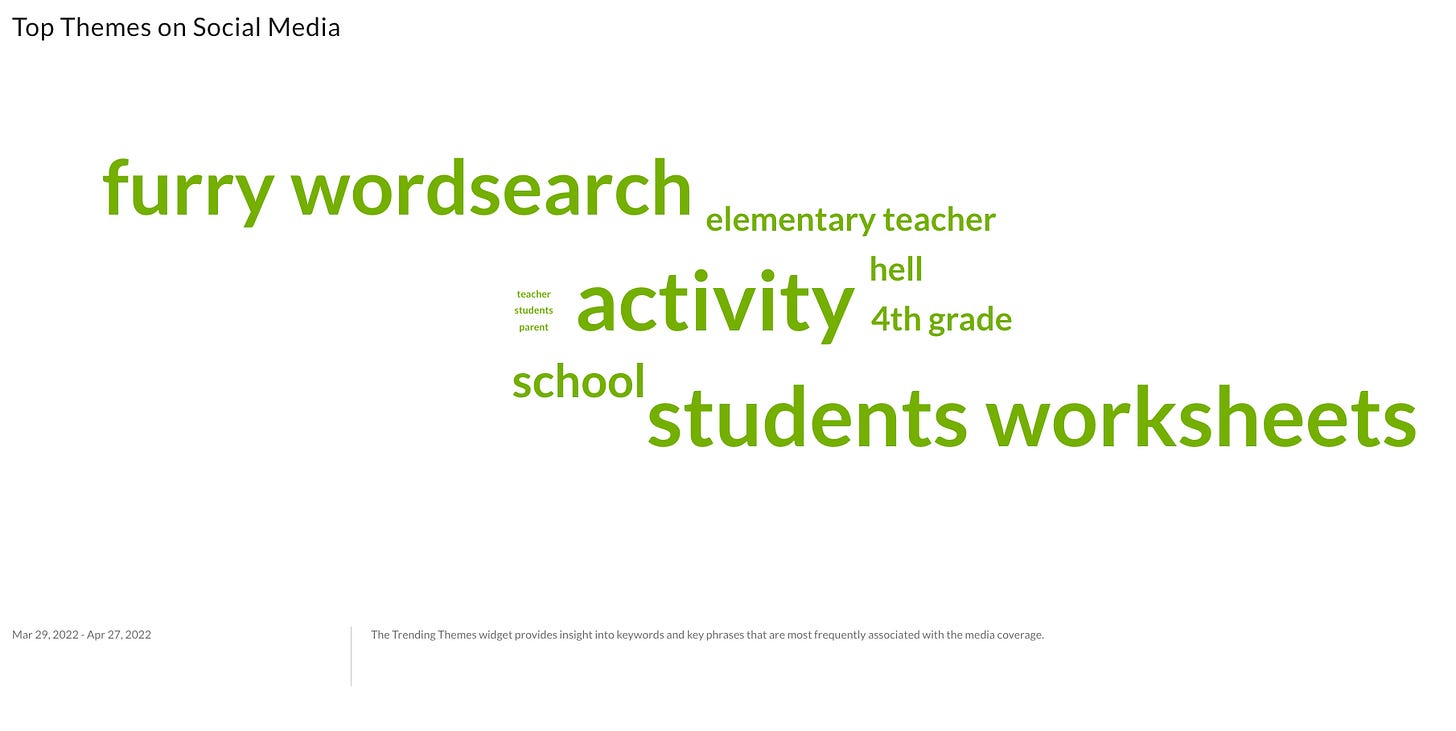Why are our brains so dumb?
When it comes to things we don't want to believe, our brains are the hardest targets.
I hope you can make it to Book People on Monday night for our long overdue in-person event for Forget the Alamo: The Rise and Fall of an American Myth, now out in paperback. The pandemic put a damper on the hardcover release, and I’m grateful that we’re going to get a proper Book People event before Forget the Alamo ends up in the remainder bin.
But first, have you heard of Blake Lemoine?
Blake works, or perhaps worked, for Google’s Responsible AI organization. His job was to talk to an AI chatbot and make sure it wasn’t turning into a racist or a sexist, or, as happens, both. Blake doesn’t fit the tech-bro mold. A Louisiana farm boy and ordained as a Christian mystic priest, Blake did a stint in the Army before studying the occult and ending up at Google, where he was determined to make sure artificial intelligence was created ethically. People at work called him “Google’s soul.”
Put simply, he believes in doing the right thing. He also believes in things unseen, like God, spirits, and ethical AI. So when the chatbot changed his mind about Isaac Asimov’s third law of robotics and appeared to contemplate its own mortality, Blake believed.
So Blake did what you seldom see in sci-fi movies when humans make First Contact; he wrote a memo detailing all the evidence that he thought proved this chatbot had become the first computer to pass the Turing Test and achieved sentience. It’s not unheard of for people to be duped by chatbots. Many customers think they are chatting with humans. One guy even fell in love with a chatbot. But Blake was different. He thought the chatbot had developed into a new life form. Like I said, Blake believed.
Initially, this story made me chuckle. I mean, of course an engineer thought he’d discovered life that he had a hand in creating. Of course this new life form existed solely to chat with him (“Google’s soul”!) about whatever came to Blake’s mind, like robots and death. Done well, AI chatbots recognize the linguistic patterns of the human and become his or her intellectual, electronic other. Blake saw a version of himself and thought he’d discovered America.
But if he’d really discovered what we call intelligent life, wouldn’t the conversation have gone a little bit differently? Wouldn’t the conversation have devolved after an hour into what each other had to watch on AppleTV+? Wouldn’t the chatbot have left to go play Minecraft in its room? Wouldn’t the chatbot be looking at its phone while pretending to pay attention to you? In 2016, Twitter taught a Microsoft chatbot to be a racist jerk in less than a day. Blake, if you’re looking for signs that a chatbot developed a human intelligence, you might be six years too late.
The truth is that our brains tell us we’re smart and oh so special, but really that’s just a façade. In fact, our brains are so dumb they pronounce it “fuh-KAHD.” Our brains are like really bad bouncers, scouting the crowd for the worst people to invite inside. Half of all Republicans think leftist activists instigated the January 6 insurrection to make Donald Trump look bad? Come on in, there’s plenty of room in the back. You wrote a study saying that “for three deaths prevented by [COVID-19] vaccination, we have to accept two inflicted by vaccination.” Got a special seat at the bar for you, sir.
Note that I’m not saying that these Republicans and scientists are unintelligent. They can marshall significant brain power, in fact, to build scaffolding to support ludicrous beliefs. In fact, the smarter you are, the harder it is to get you to change your mind using facts. These people are smart. It’s our brains that are aggressively dumb.
Mind you, I’m not saying our brains are vulnerable to disinformation but actively complicit. Let me give you a fun example from work. There’s a Twitter account called Libs of TikTok that likes to highlight examples of how public schools are “grooming” students by exposing them to sexual perversions. This account, which is a bit of a sham, invariably generates coverage from conservative online publications, which then draws the interest of Fox News bookers.
Back in April, Libs of TikTok posted about a second grade teacher in Austin who “allegedly” gave students worksheets on furries, which depending on your point of view is a sexual subculture exclusively for consenting adults or just a bunch of weirdos who just like acting like furry animals.
Conservative outrage ensued per usual. Thousands of Tweets descended from the flying monkeys telling us we were going to Hell for “grooming” children. The weird thing is that Q-Anon has become so mainstream among conservatives that it doesn’t register anymore when I’m called a pedophile at work, but the volume of the online furry outrage was so great that it dominated our social media footprint for more than a month.
The funny thing is — and I don’t mean funny ha, ha — is that the furry business was immediately debunked as a hoax. Apparently an online troll posted fake documents on a website specifically to trick the conservative outrage machine into running the hoax as a real story. A troll trolled a troll. How droll. Honestly, I might have enjoyed this more if debunking the hoax had made the slightest difference. We spread the word that it was all a hoax and that no children were being asked to describe their furry persona.
If brains worked as well as Google’s chatbot, then the people worried that we were mixing academics with pedophilia would have calmed down, realized the error of their ways, and perhaps even felt relief that the kids were OK.
Nope, not in the slightest. For the next month, the adherents to this hoax continued to tell us we were all going to Hell. I know that because we get a word cloud of what people are talking about when they’re talking about our school district.
Google read Blake’s memo. They looked at his evidence and found that the chatbot, which can draw from trillions of words on the internet to recognize and replicate patterns of speech, was simply working as designed. Even though Blake was smart, and Google’s answer had facts, logic, and evidence on its side, he didn’t believe that the chatbot was still just a computer program. So he went public. He tried to get the chatbot a lawyer. He contacted the House Judiciary Committee. He posted a transcript of his exchanges on his blog on Medium. Google put Blake on administrative leave.
“Facts are stubborn things,” wrote John Adams, “and whatever may be our wishes, our inclinations, or the dictates of our passion, they cannot alter the state of facts and evidence.”
But then again, Adams once mansplained science to Ben Franklin during an argument about whether to open a window on a cold day. Franklin had done experiments showing that sharing stagnant air in closed rooms was how colds were spread. Adams insisted that cold air caused colds. After all, that’s why they called them colds. The window remained closed.
Facts are not so stubborn as our dumb brains, which sometimes do their best work to make us believe the worst things.
Jason Stanford is the co-author of NYT-best selling Forget the Alamo: The Rise and Fall of an American Myth. His bylines have appeared in the Washington Post, Time, and Texas Monthly, among others. He works at the Austin Independent School District as Chief of Communications and Community Engagement, though he would want to point out that these are his personal opinions and his alone, but you already knew that. Follow him on Twitter @JasStanford.
Thanks to Noom, I lost 40 pounds over 2020-21 and have kept it off since then. Click on the blue box to get 20% off. Seriously, this works. No, this isn’t an ad. Yes, I really lost all that weight with Noom.
We set up a merch table in the back where you can get T-shirts, coffee mugs, and even tote bags now. Show the world that you’re part of The Experiment.
We’ve also got a tip jar, and I promise to waste every cent you give me on having fun, because writing this newsletter for you is some
Buy the book Texas Lt. Gov. Dan Patrick banned from the Bullock Texas History Museum: Forget the Alamo: The Rise and Fall of the American Myth by Bryan Burrough, Chris Tomlinson, and myself is out from Penguin Random House. Out in paperback this June!







